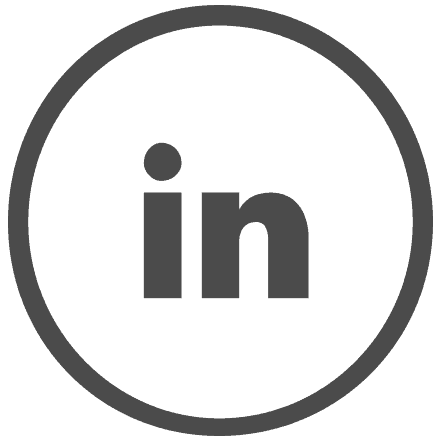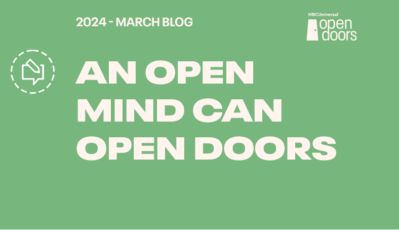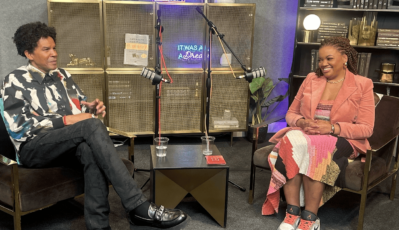FOLLOW US
April 1, 2024 | Authored By

Key Takeaways
- A Brand Is a Small Business Superpower: Building a brand is more than coming up with a logo or a slogan. A brand starts with understanding your “why.” It can differentiate you from competitors and have great value internally, rallying everyone around a common purpose.
- Connect With Community — Online and Off: Online communities can often connect you to high-intent consumers who are open to relationship building. As a small business, it’s likely you also have a local market advantage. Participate in local events, join local organizations, and reinforce your brand’s involvement in the community.
- Don’t Do It Alone: Successful small-business owners value their independence, but they also lean into their circle of friends and family. They say your network is your net worth. Surround yourself with a diverse support system, made up of people who have differing strengths and areas of expertise.
Early in my career at PepsiCo, I worked in brand management for the Pepsi and Mountain Dew brands. I had started in a research position and soon came to understand how research was its own form of storytelling. Of course it was all about the data, but interpreting that data, and sharing the stories it told, was what made those numbers come to life. In brand management, you oversee the image of a product or service. Making the brand visible in the market was an essential part of my role. Communicating the brand’s story and ensuring consistency across all touchpoints was a powerful way to achieve that visibility. Since people remember feelings more than facts, your brand must make an emotional connection with your target audience.
When I started writing the business plan for my first business, Aaron Walton Entertainment (AWE), I realized branding wasn’t reserved for marketers with big budgets or sizeable teams. There were efficient ways to get strategic about the identity of my small business and its brand promise — how I wanted my business to be perceived and what I wanted clients to expect when they chose us as a creative partner. I learned to think big and act “as if,” and I encourage you to do the same.
Start Branding Before Your Doors Even Open
There is so much beauty in the power of a brand, yet all too often small-business owners put the branding work on hold. I’ll get to it when I’m bigger or more successful, they think. But, by then, you’ve missed an opportunity to control the narrative and people will have formed opinions about who you are even if it’s not who you wanted to be. All the initial brand building can kick off before you’ve opened your doors. Just as you develop a business plan, you can develop a branding plan. Do your research and be ready to adjust along the way.
Acting “as if” starts with putting yourself into the brand manager’s shoes. It’s likely the person wearing that hat will be you. Ask yourself: what storytelling skills do you have? Or, can you collaborate with someone to help in that area? What insights can you gather to create an identity for your brand, one that will raise awareness and let people know that you not only exist, but you are also the best option for their needs?
When you hear the word “branding,” you may think about some of the more visible, external elements, like a logo or a slogan. While both are useful branding tools, they will only be effective if your foundational branding work is complete and cohesive. Among the many resources you’ll find on the NBCUniversal Open Doors website is a Brand Positioning and Messaging exercise worksheet to give you insight into developing a unique value proposition and even a map for marketing your brand.
As you create your business, start identifying your brand. It starts with your why — why does your brand exist? What’s its mission and vision? The “who” is equally important — who is your brand? What are its values? What does it care about? What is its voice? What is its personality? And who is your target customer? Don’t be afraid to choose a primary target, one type of customer you would want for the rest of your business life. It doesn’t mean you won’t attract other people, but it’s better to connect with a core group of fans than try to be everything to everybody.
A powerful brand is a small business superpower. Not only does it differentiate you from competitors, big and small, but it has great value internally, with your employees and those you want to recruit. A brand rallies everyone around a common purpose and provides a sense of collective clarity so people feel they are all pulling in the same direction. A strong brand informs a vibrant work culture and sparks employee pride. Not only does this make employees want to invest more of their talents into your business, but it makes them great brand ambassadors.
Leverage the Power of Connecting
Speaking of ambassadors, a clear, compelling brand can make it easier for fans of your business to spread the word and send more people your way. You want to stand out and mean something to people so you can make valuable connections. Raising awareness is almost always job number one for small businesses, especially in the early days. You want to use your story, and all its strengths, to break through the clutter. This is especially valuable for online marketing.
Online communities are important to small businesses and can often connect you to high-intent consumers who are open to relationship building. Making a real connection when courting consumers is not that different from making a real connection with a potential friend. It starts with providing value before promoting yourself. And providing value starts with knowing who your consumers are and what they need. When your brand seems relevant, it does even more of the heavy lifting in terms of awareness and engagement.
Technology allows us to know more about our prospects than we ever have known before. Plus, as a small business, it’s likely you have a local market advantage and can apply the human touch by participating in local events, joining local organizations, and reinforcing your brand’s involvement in the community. This could generate positive word of mouth which would make your online initiatives even more effective.
Be a genuine part of your community.
No one said you have to go it alone. Successful small-business owners value their independence, but they also aren’t afraid to lean into their circle of friends and family — and not just when they may have a problem to address. It is often said: our network is our net worth. So it’s valuable to surround yourself with a diverse support system, made up of people who have differing strengths and areas of expertise. You never know which one of your connections can help you turn an obstacle into an opportunity just by providing you with a fresh perspective.
An Infinite Resource
While some resources on the small business journey may be limited, you have a powerful resource that is infinite — you have your imagination. When it comes to branding, connecting, and a whole range of strategic thinking, your imagination is one of the best tools to tap into. The resources you’ll find on NBCUniversal’s Open Doors website are not only designed to inform but also to inspire. The Open Doors (Where Small Businesses Thrive) Podcast gives you access to small business experts in conversation with actionable take-aways in every episode. It’s like taking a master class in best-in-class business practices. NBCUniversal started Open Doors because they knew when small businesses succeed, communities thrive. So, build your brand, connect, collaborate, and celebrate your success stories no matter how big or small.
About Aaron Walton
Aaron Walton is the CEO & Founder of Walton Isaacson, an award-winning advertising and marketing firm. Founded in partnership with Earvin “Magic” Johnson, WI has built innovative business relationships with brands such as Lexus, McDonald’s, American Airlines, NBCUniversal, Amazon, and others. In 2023, Aaron was inducted into the AAF Advertising Hall of Fame.






